 "The research was just one experiment in a lab," Steve Lohr writes in the New York Times about the study, "but it does point to the larger subject of striking a balance between connectedness and isolation in the digital age."
"The research was just one experiment in a lab," Steve Lohr writes in the New York Times about the study, "but it does point to the larger subject of striking a balance between connectedness and isolation in the digital age."
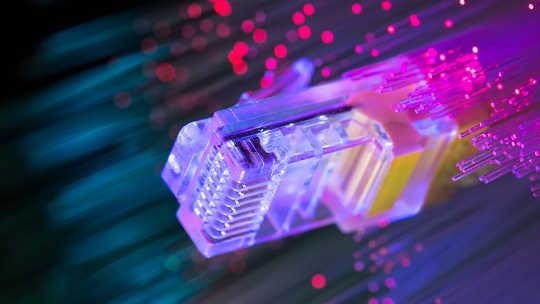 Earlier this month, the US Broadband Opportunity Council declared that broadband is “taking its place alongside water, sewer and electricity as essential infrastructure for communities”.
Earlier this month, the US Broadband Opportunity Council declared that broadband is “taking its place alongside water, sewer and electricity as essential infrastructure for communities”.
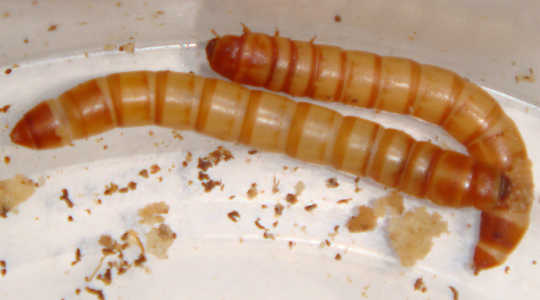 Every year, people in the US throw away 2.5 billion plastic foam cups—and that’s just a fraction of the 33 million tons of plastic that Americans throw out each year.
Every year, people in the US throw away 2.5 billion plastic foam cups—and that’s just a fraction of the 33 million tons of plastic that Americans throw out each year.
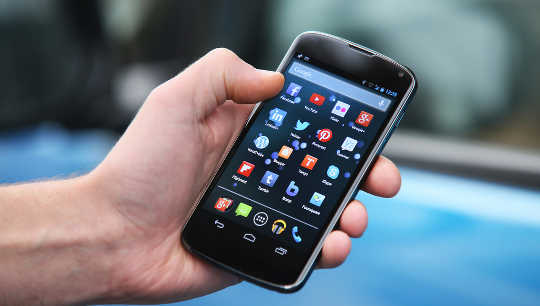 Apps drain 28.9 percent of smartphone battery power while the screen is off, according to the first large-scale study of smartphones in everyday use.
Apps drain 28.9 percent of smartphone battery power while the screen is off, according to the first large-scale study of smartphones in everyday use.
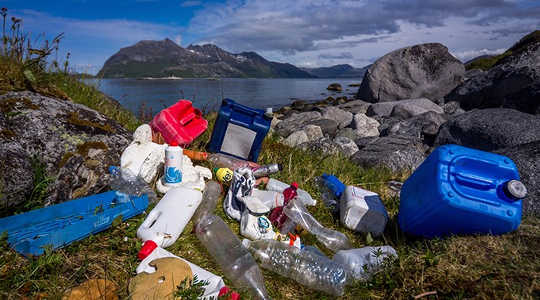 As petroleum-based polymers foul our oceans and litter our lives, researchers seek more environmentally friendly ways to meet demand for durable, versatile materials.
As petroleum-based polymers foul our oceans and litter our lives, researchers seek more environmentally friendly ways to meet demand for durable, versatile materials.
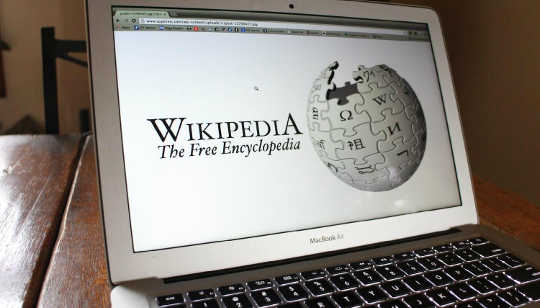 “Also: please note that we NEVER link to Wikipedia,” reads the email about an article for The Conversation Africa. I’m not surprised. The same sentiment is expressed in many course documents at universities and schools.
“Also: please note that we NEVER link to Wikipedia,” reads the email about an article for The Conversation Africa. I’m not surprised. The same sentiment is expressed in many course documents at universities and schools.
 Ever fancied having a superpower? Something you can call upon when you need it, to hand you extra information about the world? OK, it’s not X-ray vision, but your eyes do have abilities that you might not be aware of.
Ever fancied having a superpower? Something you can call upon when you need it, to hand you extra information about the world? OK, it’s not X-ray vision, but your eyes do have abilities that you might not be aware of.
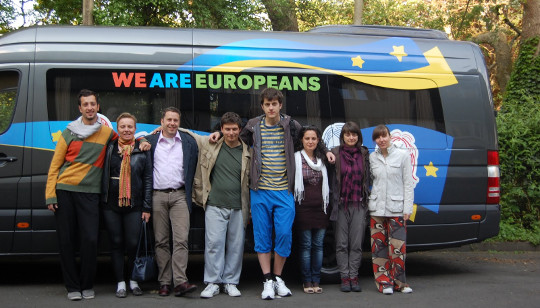 For such a large and culturally diverse place, Europe has surprisingly little genetic variety. Learning how and when the modern gene-pool came together has been a long journey. But thanks to new technological advances a picture is slowly coming together of repeated colonisation by peoples from the east with more efficient lifestyles.
For such a large and culturally diverse place, Europe has surprisingly little genetic variety. Learning how and when the modern gene-pool came together has been a long journey. But thanks to new technological advances a picture is slowly coming together of repeated colonisation by peoples from the east with more efficient lifestyles.
 The recent announcement by Tesla of Powerwall, its new lithium-ion (Li-ion) based residential battery storage system, has caused quite a stir. It even raises the possibility of going off-the-grid, relying upon solar panels to generate electricity, and storing it with their own battery and using it on demand.
The recent announcement by Tesla of Powerwall, its new lithium-ion (Li-ion) based residential battery storage system, has caused quite a stir. It even raises the possibility of going off-the-grid, relying upon solar panels to generate electricity, and storing it with their own battery and using it on demand.
 Fans of homebrewed beer and backyard distilleries already know how to employ yeast to convert sugar into alcohol. Now, bioengineers have gone much further by completing key steps needed to turn sugar-fed yeast into a microbial factory for producing morphine and potentially other drugs, including antibiotics and anti-cancer therapeutics.
Fans of homebrewed beer and backyard distilleries already know how to employ yeast to convert sugar into alcohol. Now, bioengineers have gone much further by completing key steps needed to turn sugar-fed yeast into a microbial factory for producing morphine and potentially other drugs, including antibiotics and anti-cancer therapeutics.
 Genetic factors appear to be important in determining when we turn grey. Identical twins seem to go grey at a similar age, rate and pattern, however we’re yet to identify the controlling genes.
Genetic factors appear to be important in determining when we turn grey. Identical twins seem to go grey at a similar age, rate and pattern, however we’re yet to identify the controlling genes.
- By Admin
The underwater icicles, or brinicles, are known as the "finger of death". That is a good name for them as you will see as you watch this awesome video footage. Not only does it look like a finger pointing down to the sea bed, but...
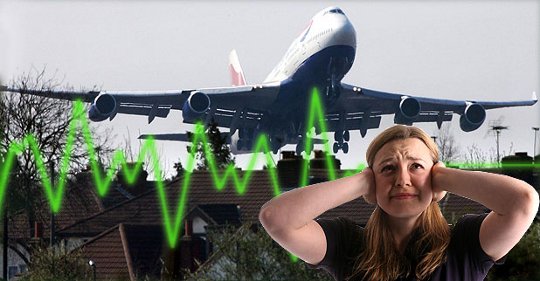 We live in an increasingly noisy world. Since even low-level noise can affect quality of life, new tools to deal with noise are welcome. “Auralisation”, the audio equivalent of visualisation, is now helping to model and improve the sound of our living and working spaces, as well as recovering the acoustics of past environments.
We live in an increasingly noisy world. Since even low-level noise can affect quality of life, new tools to deal with noise are welcome. “Auralisation”, the audio equivalent of visualisation, is now helping to model and improve the sound of our living and working spaces, as well as recovering the acoustics of past environments.
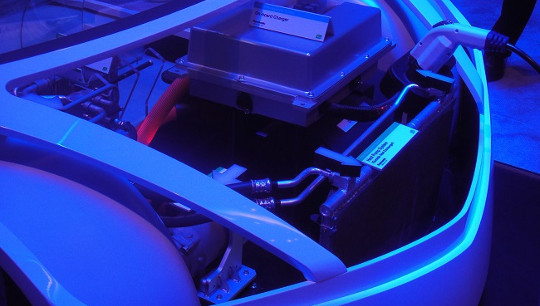 A battery that could treble electric car mileage and cut costs is among the innovations moving closer to reality on the frontiers of science.
A battery that could treble electric car mileage and cut costs is among the innovations moving closer to reality on the frontiers of science.
 Separation from iPhones can cause users serious psychological and physiological effects, including poor performance on cognitive tests, according to new research.
Separation from iPhones can cause users serious psychological and physiological effects, including poor performance on cognitive tests, according to new research.
 In an effort to jumpstart adoption of fuel cell electric vehicles, Toyota Motors earlier this month made more than 5,600 patents available to other carmakers. A few days later, General Motors introduced the electric Bolt, an electric vehicle designed to run 200 miles on batteries.
In an effort to jumpstart adoption of fuel cell electric vehicles, Toyota Motors earlier this month made more than 5,600 patents available to other carmakers. A few days later, General Motors introduced the electric Bolt, an electric vehicle designed to run 200 miles on batteries.
 As wind power companies venture into ever-deeper waters, the traditional windmill-style turbine may not be the most suitable solution. It’s time to look at alternatives.
As wind power companies venture into ever-deeper waters, the traditional windmill-style turbine may not be the most suitable solution. It’s time to look at alternatives.
- By Nick Inman
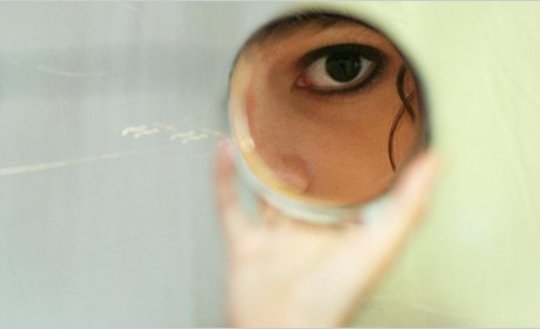
What will you and I—and our descendants—become over the next decades or centuries? Is the answer to this question self-evident? Or will we be radically different from how we are now? All that follows from this thought is conjecture, but it is more than a venture into fantasy or science fiction.

Brian is correct that his brain made him do it. It was not his legs or eyes that made him watch the movie. It also wasn’t the movie or another person that made him do it. It was his desires, which are in his brain...

Science textbooks say humans can’t see infrared light. New research, however, finds that our retinas can sense it under certain conditions. Scientists on the research team "were able to see the laser light, which was outside of the normal visible range..."
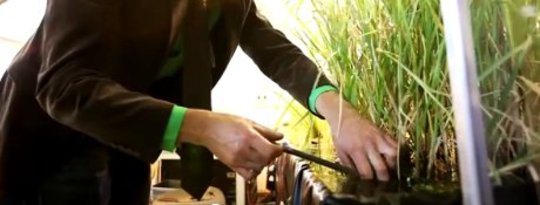
Using plants to generate electricity brings a new clean energy option to the table, but even more exciting, the company plans to expand the technology to existing wetlands and rice paddies where electricity can be generated on a larger scale. This could give power to some of the world’s poorest places.
- By Joan Cerio
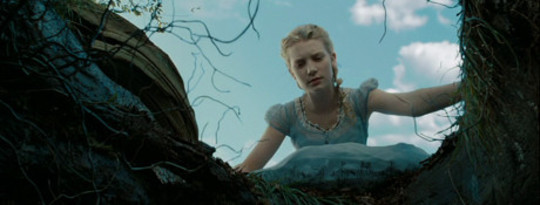 Fast-forward about 150 years from Alice in Wonderland’s time and we all find ourselves down a version of her rabbit hole. The Maya call this the lifetime of change. I like to refer to it as the lifetime full of lifetimes of change. How many “lifetimes” have you lived within this lifetime?
Fast-forward about 150 years from Alice in Wonderland’s time and we all find ourselves down a version of her rabbit hole. The Maya call this the lifetime of change. I like to refer to it as the lifetime full of lifetimes of change. How many “lifetimes” have you lived within this lifetime?
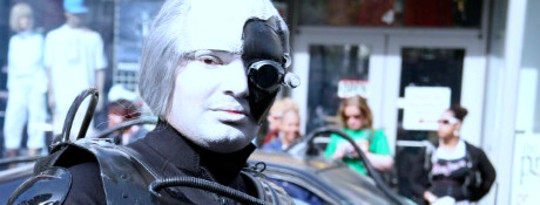
Astrophysicists say questions about the sustainability of civilisation on our high-tech planet may soon be answered scientifically as a result of new data about the Earth and other planets in its galaxy.














